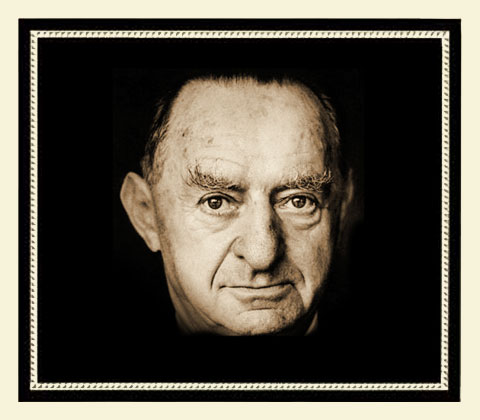Podwoloczyska, Galicia, Austro-Hungary (today Pidwolotschysk, Ukraine), 1900 — Basle, Switzerland, 1996
Novelist, biographer, playwright, publisher
His longevity and energy made him one of the most prodigal and respected memorialists. At the time of his death he was considered a living monument in 20th century German literature. An inspired writer, fearless militant, he took an active part in rescuing the cream of Europe’s intelligentsia and sending them to the USA
The son of the Jewish merchant Isaac Kesten, in 1904, still a child, he moved with his family to Nuremberg, where he finished secondary school. Between 1919 and 1923 he studied law, philosophy, history and German literature at Erlangen and, later, Frankfurt. He produced an extensive literary output and associated himself to the movement known as New Objectivity.
In 1927 he settled in Berlin, where he worked at the left-wing publishers Kiepenheuer and had his first literary success, the novel Joseph sucht die Freiheit, [Joseph seeks his Freedom] followed in 1929 by Ein ausschweifender Mensch, [A Dissolute Man] Gluckliche Menschen (1931) [Happy People] and Der Scharlatanen (1932) [The Charlatans]. He published some plays and his acuity as a publisher enabled him to publish several anthologies of new writers, some of which were so representative that they were reprinted 50 years later.
He wrote biographies of Ferdinand and Isabella (1936), Philippe II (1938), Copernicus (1948) and Casanova (1952), and in 1939 published Die Kinder von Gernika [The Children of Guernica], an indictment of Francoism.
His anti-Fascist activism and especially the book Der Scharlatanen, a clear attack on Hitler’s Fascism, forced him into exile as soon as the Nazis came to power. He wandered through Europe, passing through Nice, France, where he kept closely in touch with Stefan Zweig, Joseph Roth, Heinrich Mann and numerous other refugees. In Amsterdam he was hired as editor by Allert de Lange and together with Walter Landauer helped build up a great network of support for German literature in exile.
The occupation of Holland by the Germans forced him to flee to France, where he was interned in a concentration camp as a “foreign enemy”. He managed to flee to the United States in May 1940, where he was quickly recruited to run the Emergency Rescue Committee along with Erika Mann (see entries). He was one of the coordinators of the operation to rescue intellectuals persecuted by Nazism, lead by New Yorker Varian Fry, which saved more than a thousand people, among them Friderike Zweig, her daughters and sons-in-law (see entries)
He kept up a regular correspondence with Stefan Zweig, focussing mostly on literary topics. He made posthumous criticisms of the biography of Marie Antoinette (“a footnote to a lecture by Sigmund Freud about psychoanalysis”) which wouldn’t have displeased Zweig as much as it would have Freud. But he left a precise and precious recollection of Zweig: “...a curious and complicated man, complex and interesting (...) a grand bourgeois in manners and anti-bourgeois by conviction (...) a happy pessimist and an optimist who saw nothing but death.”
He was fascinated by the theme of exile, published in German and English the poems of Heine, the patron of German exile, and was responsible for the recovery of the complete works of his friend Joseph Roth, including his correspondence (in which Zweig appears profusely).
After the war, in 1949, he returned to (West) Germany, where he was acclaimed, given awards and chosen as president of the P.E.N. Club. The veteran socialist wasn’t impressed by the literature produced in Communist Germany. He decided to move to Rome, where he lived from 1955 to 1977 and when he was left a widow on the death of Toni (Antoine) Kesten (née Warowitz), settled in Basle, Switzerland. There he spent his last years in an institution for elderly Jews.
The last letter Zweig wrote to Kesten from Petrópolis just over 30 days before committing suicide is calm enough: with some humour he talks about recent work, shares his concern for writers in exile, and engages in the task of strengthening the publisher Bermann-Fischer, in Stockholm, the last bastion of free German literature. In this they were successful. (see entry).
Address listed: s. unten Hotel Park Plaza, 50 West 77th St. New York. Tel. Endicott 2-3700 [crossed out]; 545 West 111th Street Apt 4F [NY]
